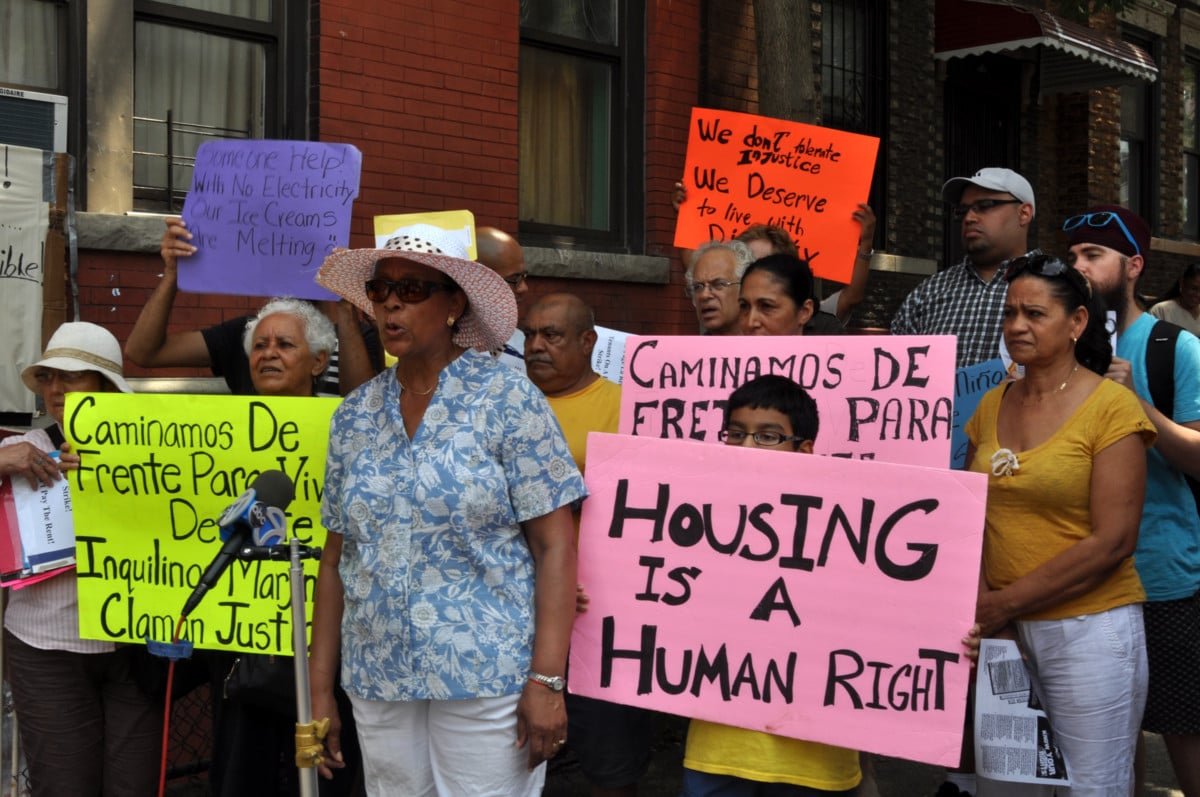Unless you’ve relied on housing choice vouchers — also known as ”Section 8″ — at some point in your life, you likely don’t think about housing subsidies very often. This federal program, which serves over two million people annually, can be life-changing for participants — but as with other government benefits, it can also come with a burden of stigma and discrimination.
A recent study by the Urban Institute examined how prospective landlords interact with tenants who use vouchers — and their findings were pretty depressing: Up to 78 percent of landlords in some places refused to rent to tenants using vouchers.
These vouchers provide assistance with the cost of renting — and, in some cases, buying — a home. They go directly to the landlord. In instances where the vouchers don’t cover the entire cost of rent, tenants must make up the difference. People who use vouchers are exactly like other tenants, but some of their rent comes from the government — that’s it!
To qualify, people must make less than 50 percent of median income and go through an application process that includes extensive documentation. Then they’re placed on a waiting list for vouchers — and it can take years for their names to be called. The process of applying for and getting vouchers, in other words, isn’t easy. Having one in hand is no guarantee that you’ll find a rental, either.
You may have seen “No Section 8” on “for rent” signs and apartment ads — and in many places, that’s entirely legal. That’s the problem, argue the researchers: When landlords don’t face any penalties for declining vouchers, they feel free to reject perfectly good tenants.
That changes radically in areas where this kind of discrimination is prohibited. In Washington, D.C., for example, just 15 percent of voucher-using tenants were turned down.
Why Are So Many Landlords Anti-Vouchers?
Well, that’s where the stigma comes in. Many people associate housing choice vouchers with poverty, and they assume that low-income people don’t make good tenants. They may think these renters are more likely to “trash” a house, be unable to take care of it or have dirty or disruptive habits. These attitudes are not based in fact, of course, but it makes it hard for these tenants to get in the door. Landlords may also believe that the tenants’ share of the rent will be late.
As a result, people who use vouchers often end up in economically depressed, racially segregated neighborhoods.
To address this issue, some regions have passed bans on housing voucher discrimination. They do not require landlords to rent to tenants using vouchers, but vouchers alone cannot be used as a reason to deny tenancy. They may also stipulate that landlords cannot raise the rent above the rate charged for comparable housing.
In other words, if you rent a two-bedroom apartment for $1,500, you cannot charge a voucher-using tenant $1,800 to take advantage of the combined purchasing power of the voucher and the tenant’s own income.
Some landlords complain about and successfully overturn such laws, but they’re making steady progress across cities like Chicago, Newark, Washington, D.C. and other U.S. cities — along with several states.
Is an Anti-Discrimination Law Necessary?
Voucher holders aren’t automatically protected from discrimination simply because they have vouchers, which is why explicit laws are needed, advocates argue. The researchers also noted that systems of inequality in the United States make it such that many people with vouchers are also members of legally protected classes: They are women, people of color and disabled people, due to higher poverty rates in all of these populations. Discriminating against them because they have vouchers can exacerbate social inequality.
The researchers concluded that protective laws would help reduce discrimination, as would landlord outreach and education — especially in moderate and high-income neighborhoods — to reduce housing segregation and open up more housing units.
Vouchers are, of course, not the only way to improve access to housing. Rent control can protect tenants who want to stay in their homes, while building public housing can increase the number of available housing units and lower overall costs.
In some parts of the country, activists known as “YIMBYs” are pushing for more widespread public and private development, especially around transit hubs in the suburbs. They argue that this can reduce displacement and gentrification by preserving historic communities while still providing housing for newcomers.
Trump is silencing political dissent. We appeal for your support.
Progressive nonprofits are the latest target caught in Trump’s crosshairs. With the aim of eliminating political opposition, Trump and his sycophants are working to curb government funding, constrain private foundations, and even cut tax-exempt status from organizations he dislikes.
We’re concerned, because Truthout is not immune to such bad-faith attacks.
We can only resist Trump’s attacks by cultivating a strong base of support. The right-wing mediasphere is funded comfortably by billionaire owners and venture capitalist philanthropists. At Truthout, we have you.
Truthout has launched a fundraiser to raise $50,000 in the next 9 days. Please take a meaningful action in the fight against authoritarianism: make a one-time or monthly donation to Truthout. If you have the means, please dig deep.
